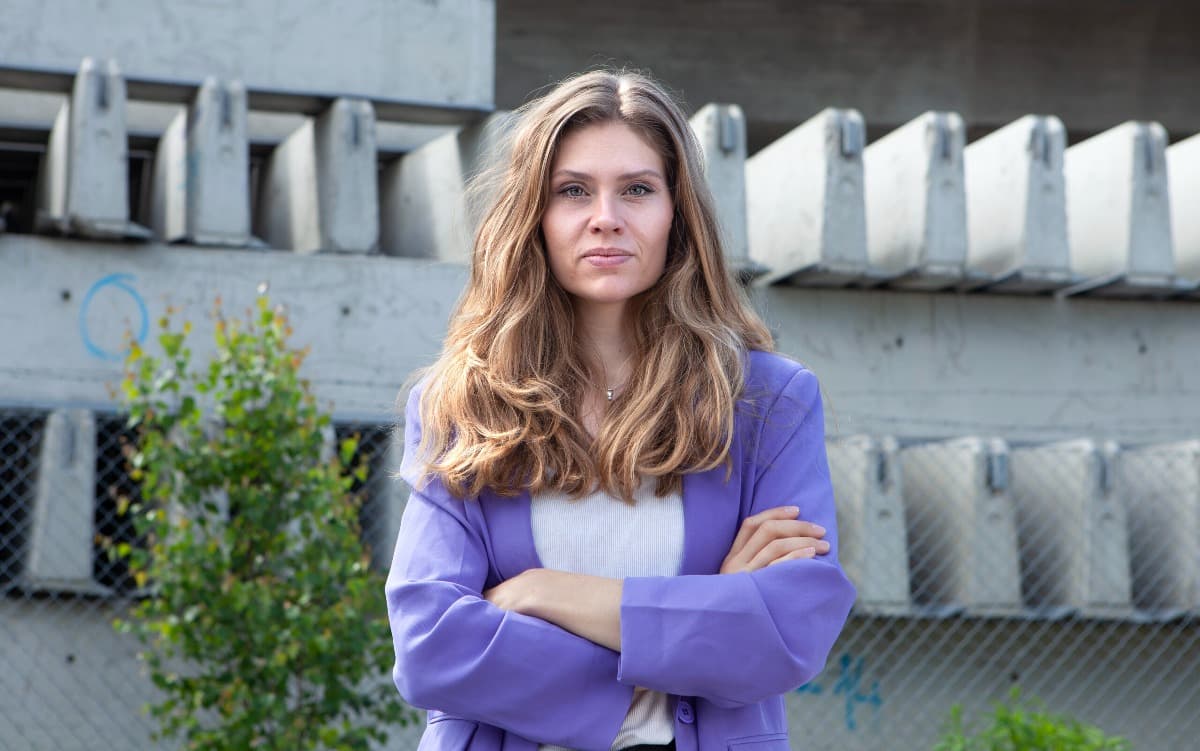Let new policies sail!
Piratpartiet works toward an open, free and democratic society. The ability to share knowledge and culture is one of the foundations of our policies. We stand up for the rights to freedom of thought and speech, and our mission is to protect and develop these principles.

Human dignity is inviolable. Everyone has the right to life, freedom of thought, personal autonomy and the ability to participate in society. We are all entitled to equality before the law, and we all have a fundamental right to privacy.
Technological advancements are currently used to control, abuse, and divide us. Instead, we want to use them to build community, spread knowledge, enable innovation and improve quality of life.
Piratpartiet envisions a society where knowledge is part of the commons, without artificial impediments like copyright and patent. A society where we have equal freedom to learn, act, cooperate and create. Piratpartiet fights for a liberated internet free from surveillance, censorship, and monopolization.
A high quality digital infrastructure, along with an internet on which people can communicate freely, creates an enormous potential for economic, societal, and cultural progress. The way that the digital infrastructure is designed and constructed matters. It determines whether or not we can secure vital functions in society, and whether or not you are allowed to use your voice to fight for what you believe in.
Pirate policy is anti-monopolistic. We fight for distribution of power to ensure that people have the freedom to be their authentic selves, and the ability to make informed decisions in their own lives. In today’s information society, knowledge and information are the source of power. It is thus vital that people are not subject to surveillance, neither by big corporations nor by the state, and that we impose high standards of transparency on those in power.
A lack of political transparency and tools necessary to enforce accountability creates a breeding ground for corruption and wasteful spending of government funds. This, in turn, erodes our trust in democracy and public institutions. Piratpartiet combats corruption and wastefulness with transparency, increased participation, and reforms that hold those in power accountable.
Piratpartiet will only cooperate with parties that are prepared to tackle the issues of corruption and misuse of tax money, as well as update our democracy for the 2020’s.
Here we present the political issues that Piratpartiet will focus on in the 2022 general election:
Modern democracy
Democracy enables individuals with different interests to coexist in a fair way. This can not be accomplished solely by elections every four years. Digitalization brings new opportunities for citizens to participate – directly or indirectly – in decision making. We must strengthen the protection against legislation that undermines fundamental liberties and rights.
- Expand the possibilities to prevent, investigate, and combat corruption.
- Strengthen the protection of the constitution and introduce a constitutional court that tries whether new laws are consistent with the constitution.
- Try new forms of liquid democracy and civic influence, especially on local and regional levels. Ensure that all demographics are able to participate.
- Reinstate civil servant liability, but decrease political micromanagement and let civil servants use their expertise within the framework of their work.
- Restore the principle of public access to information in practice – It must not require an unreasonable amount of work to gain visibility into publicly funded activities.
- Improve the documentation of decisions that concern the lives of individuals.
- Reform the electoral system: separate the elections to municipality, region, and parliament to promote awareness of the political system and on which level different types of decisions are made. Reform the ballot system, change the requirements for economic assistance to political parties and remove electoral thresholds in order to break the sponsorship of established parties and stimulate a richer political landscape.
Responsible digitalization.
Digitalization of education, healthcare, and other public institutions must never become a goal in and of itself. Digital tools are means to achieve other goals: to improve services and operations, to facilitate for those who work in said institutions, or to strengthen democracy. These goals must be central when we procure or develop digital technology for the public sector. Digital sovereignty – the ownership of, and control over, the systems used – is important for public institutions to be in control of sensitive information and expenses. Open source code is often a prerequisite for this.
- The long term goal should be for the public sector to exclusively utilize open-source code and open-source hardware, and to make non-personal data available as open data.
- Change the laws and procedures regarding public procurement to enable responsible, flexible and user-friendly development of digital systems. This will reduce wasteful spending of tax money and ensure that digitalization actually strengthens operations and their users.
- One of the principles should be that the state and the public sector provide basic digital infrastructure with open interfaces. This enables others, both companies and citizens, to build services that connect to and use these systems and open information.
- Cyber security is a question of national security as well as an important economic issue. We want to chart vulnerabilities and make investments in critical infrastructure in order to ensure that it is resilient, and to reduce vulnerability to cyber attacks, in everyday life, during war, and in times of crisis. Sweden needs political leadership in cyber security issues, and cyber security standards need to be established as guidelines for businesses and public sector.
- Create a national digital identification. People must have the ability to verify their identity. We can not depend on private companies to provide these.
Dynamic labour market.
The Swedish systems for social security and labour market are based on an industrial society with large corporations as employers, where permanent employment is the norm. A dynamic economy, on the other hand, is characterized by also having many small businesses, in which people try new ideas, sometimes successfully, and sometimes not. For many people today, however, the reality is one of short substitute positions, project employment, involuntary self-employment, and a constant hunt for odd jobs, in an increasingly fragmented “gig economy”. As such there is a need to radically recalibrate these systems to provide a basic social security not only for workers with permanent employment, but also those who lack a secure, permanent employment.
- Reconstruct the social security systems to adapt them to a more flexible labour market, so that they encompass and can be utilized even by those who sell their labour in small portions, or move between short-term assignments of various kinds. Ensure that even small odd jobs are worth taking.
- The foundation for a social security system for everyone should be a basic income, we want to implement test runs of this on a larger scale.
- Counteract tendencies towards oligopoly in different lines of business, and facilitate self-employment and small businesses.
- Ensure that small labour unions have the same possibilities to represent and negotiate for their members as large labour unions.
Education in the information age
The skills and capacities demanded of people today differ widely from the ones demanded in the industrial society for which our education system was designed. Develop the education system, but implement changes in a controlled manner, let people with the relevant experiences lead the development, and continuously evaluate the effects of these changes. We need to empower teachers to develop their tutoring, and we need to strengthen the connections and exchanges between the education system and practical research. Life long learning must be easily accessible to all.
- Good teachers are a prerequisite for a good education. Raise the status of teachers with guarantees of continuous education, more clearly defined merit-based supplementary training programs, reduce bureaucratic burdens and free up time for the core objective: tutoring.
- Strengthen the connection between academia and the education system, with close ties to practical research and collaborations. That way, new models, methods, and tools that fulfill the actual needs of our education system can be developed.
- Let openness be the norm: Employees that produce educational material as a part of their work within the education system shall share this openly. Encourage cooperation. Make exceptions in copyright for educational use.
- Distribute resources among schools based on the needs of the particular groups of students involved, and adjust it to match the special responsibility of public schools to accommodate all students.
- Reform the grading system. Simplify the grade criteria and evaluate alternative basis of admission to consecutive stages and higher education.
- Give children the support they need early. Focus resources and supplementary training specifically towards the first years of school in order to identify and accommodate special needs early on, and aim for greater flexibility and possibilities for high achieving students.
- Facilitate continuous learning throughout life. Right to work part-time to study, improve the opportunities to verify and validate degrees attained in other countries or through online education.
Right to privacy
The right to privacy is fundamental in a democracy. Respect for the personal integrity of all persons is necessary in order for people to live a life of dignity, with the ability to participate in society and to speak their mind without fear. Because of this, neither governmental nor commercial actors shall conduct surveillance of the communication between ordinary people, nor collect personal data. The internet surveillance of today must cease, and the mandate that police and companies have to collect information regarding citizens’ online activities must be severely restricted.
- Systemic surveillance is harmful to our democracy. All mass surveillance of persons not suspected of a crime must cease.
- Protect the access to encrypted communication.
- Ensure that individuals can, in practice, opt-out of commercial data collection when using the internet and digital units.
- Data Minimizing as standard: Authorities should not store sensitive personal information unless it is absolutely necessary in order for the authority to perform their task. Cross-referencing of databases should exclusively be allowed after there has been an explicit political decision to do so.
- Preserve the secrecy of correspondence and expand it to also cover electronic communication, including chats and email.
- A human police force. Police are to prioritize crimes with human victims, and spend more resources on patrolling the streets and building human relations within communities, particularly in areas where crime rates are high.
- Protect the bodily integrity of individuals and the individual right to make decisions regarding ones own body, for instance in matters regarding vaccines, gender affirming healthcare, abortion, and drug use.
Living culture
Culture is a necessary building block of all civilizations. Digitalization and modern technology entails enormous potential for humans to create, mix, express, enjoy, and share different forms of culture. In order to make use of the cultural value of this potential Piratpartiet wants to change the outdated intellectual property rights, which today mostly benefits large corporations, and to strengthen the possibilities of cultural exchange between people.
- Sweden should work towards a reformed copyright law, where the automatic commercial copyright duration is reduced to five years. Following registration in a public database, this duration could extended by five years at a time, up to a maximum of twenty years. Remixing and quoting, for instance in parodies, should be exempt from copyright.
- Non-commercial sharing of culture, file sharing, shall be allowed.
- Stop dismantling and start evolving libraries. In an increasingly digital world, public libraries serve an important purpose as a physical, offline venue for literature and other culture, and as a place that helps people navigate through the flow of information.
- Theatre, music, and other cultural events that are financed by governmental funds are to be recorded and made available to all. The contents of museums, libraries, and archives shall be digitalized and made accessible through the internet free of charge.
- The public sector should support people to meet in different forms of creation, for instance through opening or supporting open workshops or makerspaces.
- Prioritize small scale culture before large arenas. Vitalize towns and cities by establishing open venues that can be used for music, dance, art and other cultural endeavours.
Dignified healthcare
The healthcare system’s primary goal is, in essence, to minimize suffering and maximize well being. Healthcare must be grounded in scientific research and be evidence based. At the same time it must also respect the individual as a person and the choices they make. The healthcare system is a place where people share the most intimate details of their lives. we can therefore never allow medical journals and other sensitive information to fall into the wrong hands. People deserve healthcare that is accessible and of high quality, regardless of whether their ailments are somatic or psychiatric. As such, we want to ensure that people suffering from psychiatric disorders are offered help within primary healthcare, using what is known as integrated healthcare models
- Sweden needs a nationwide medical journal system that is built on decentralized infrastructure and open software, to ensure that it’s secure and robust. IT used in healthcare must be an asset for users and patients, not a time consuming burden. In order to achieve this, it must be developed in close collaboration with the intended users.
- Upgrade and prioritize the healthcare given to those suffering from mental illness, a medical field that has been neglected for a long time. Implement integrated healthcare models so that patients with mental illness can get help from primary health care centres. Ensure that primary health care gets the capacity to handle its widening mission.
- Structure health care institutions in such a way that the workload on staff becomes reasonable and manageable. The resources allocated to health care shall primarily go to caring for patients, not bureaucracy.
Humane drug policy
Each year, several hundred people in Sweden die because of narcotics use, and a significant portion of the law enforcement’s resources are spent on combating minor drug offences. This is a failure that the politicians currently in power would rather not acknowledge. Piratpartiet, however, wants to change the course of Sweden’s drug policy.
- Decriminalize the consumption of all currently illegal substances. Use evidence based measures and prioritize harm reduction. Help people regain a dignified life where possible, and give medical treatment where necessary.
- The public perception of those who consume drugs must undergo radical changes. Abstinence may never be used as a condition for other support measures, even when the individual’s use of drugs is classified as problematic use. The healthcare system shall always prioritize saving lives and improving well being above all else.
- Legalize cannabis and create a regulated market through the use of state monopolies or licenses, similar to how we treat already legal drugs like alcohol and tobacco. By doing so, we deprive criminal organizations of income from drug sales and free up police resources that instead could be used to fight crimes with human victims.
- Increased opportunities to research currently scheduled substances that have the potential to be beneficial in healthcare.
Together, we must push for new policies based on the societal issues of today and of the future, not on the issues of the 1900’s. Piratpartiet understands these issues and can propose answers. We are a global political movement that has experience with political work in not only the European Parliament, but also national and local governments around Europe.

